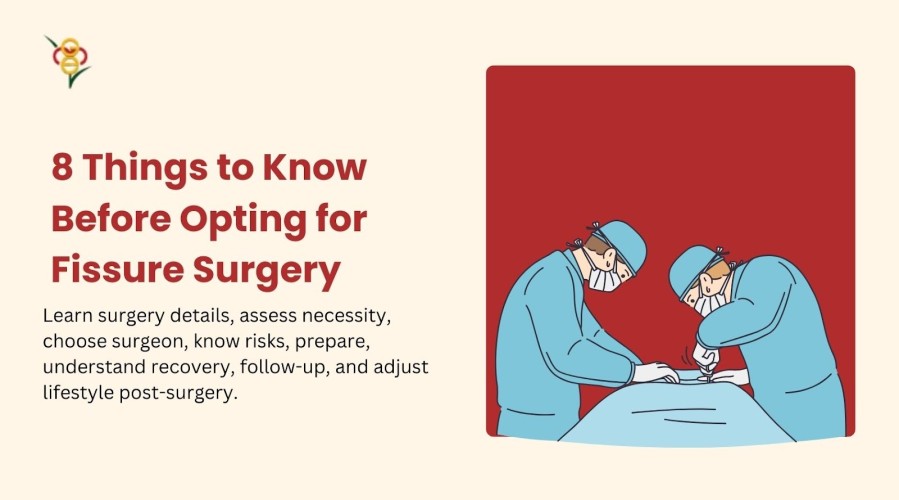Learn what gallstones are, their common symptoms, causes, and treatment options. Discover when to seek medical care and how to manage gallstone complications effectively.
8 Things to Know Before Opting for Fissure Surgery

If you are considering fissure surgery, it’s important to be well-informed about every aspect of the procedure. This comprehensive guide provides eight essential points that anyone looking to undergo this surgery should understand. Equipped with this knowledge, you’ll be better prepared to make an informed decision and discuss your options confidently with your healthcare provider.
1. Understand the Procedure
Lateral Internal Sphincterotomy, the most common surgical treatment for chronic anal fissures, involves a small incision in the anal sphincter to decrease muscle tension and promote healing. Understanding the specifics of the surgery, such as duration, anesthesia used, and the exact surgical steps, can help alleviate any apprehension you might feel about the procedure.
2. Assessing the Necessity
It's essential to consider surgery only after all non-invasive treatments have been tried. These might include topical creams, Botox injections, and dietary adjustments. Surgery is typically recommended for those who do not respond to these treatments to prevent further complications and chronic pain.
3. Choosing the Right Surgeon
Finding a qualified colorectal surgeon is critical. Look for a surgeon with a robust track record of successfully performing fissure surgeries. Research their credentials, read patient reviews, and consider their experience in the field. A skilled surgeon not only provides better outcomes but also reduces the likelihood of complications.
4. Know the Risks Involved
While fissure surgery is generally safe, it’s crucial to understand potential risks such as infection, bleeding, temporary or permanent changes in sphincter control, and reactions to anesthesia . Discuss these risks thoroughly with your surgeon to understand their frequency and the measures taken to mitigate them.
5. Pre-Surgery Preparations
Preparation is key to a successful surgery and recovery. This may include dietary restrictions to empty your bowels, stopping certain medications, and arranging for someone to drive you home post-surgery. Also, prepare your home for your recovery period by setting up a comfortable resting area and stocking up on recommended foods.
6. Understanding Post-Surgery Recovery
The recovery process is usually swift, but it varies by individual. Most patients can resume normal activities within a week, though complete healing might take a few weeks. Pain management will be an essential part of recovery, as will keeping the surgical area clean to prevent infection.
7. Follow-Up Care is Crucial
Regular follow-up appointments are vital to ensure proper healing and to address any concerns swiftly. These check-ups allow your surgeon to assess the surgical site and rectify any issues promptly, such as delayed healing or infection, which are crucial for a smooth recovery.
8. Lifestyle Adjustments Post-Surgery
Long-term prevention of future fissures involves dietary and hygiene changes. Increasing fiber intake, staying hydrated, and maintaining good anal hygiene are essential steps. These habits help soften stool and reduce strain during bowel movements, which is critical to preventing recurrence.
Schedule an Appointment at GEM Hospital
Fissure surgery can significantly improve your quality of life if performed correctly and followed up with appropriate care. At GEM Hospital, our dedicated team of specialists is ready to provide comprehensive care tailored to your specific needs. Schedule an appointment with us today to take the first step towards a pain-free life.
Blogs & Article
Learn about bloating and gas problems, including common causes, symptoms, and effective solutions to improve digestion, reduce discomfort, and maintain gut health.
Learn how unverified Ayurveda treatments may cause liver damage, understand the risks, symptoms, and why medical guidance is essential for safe care.


